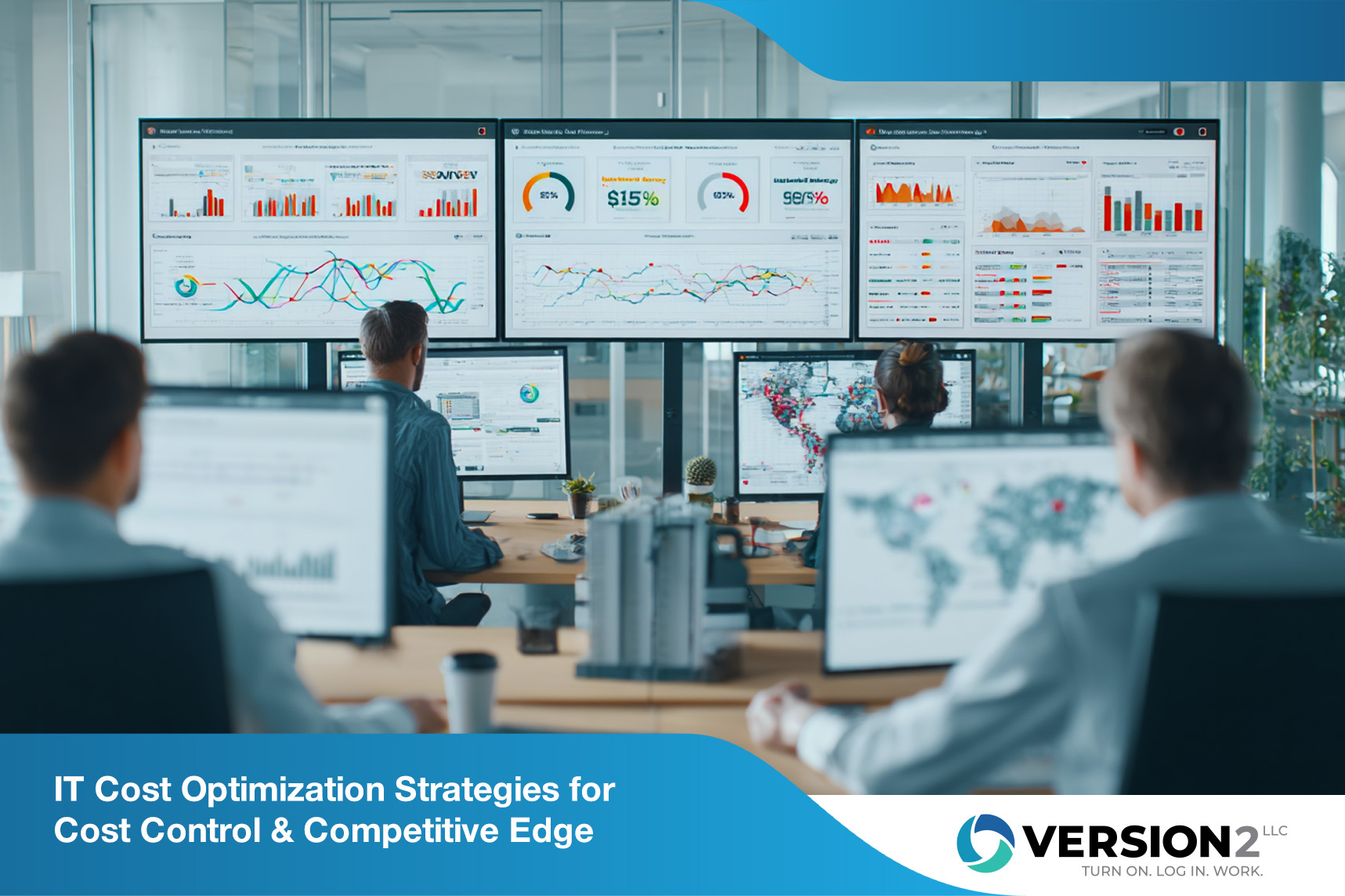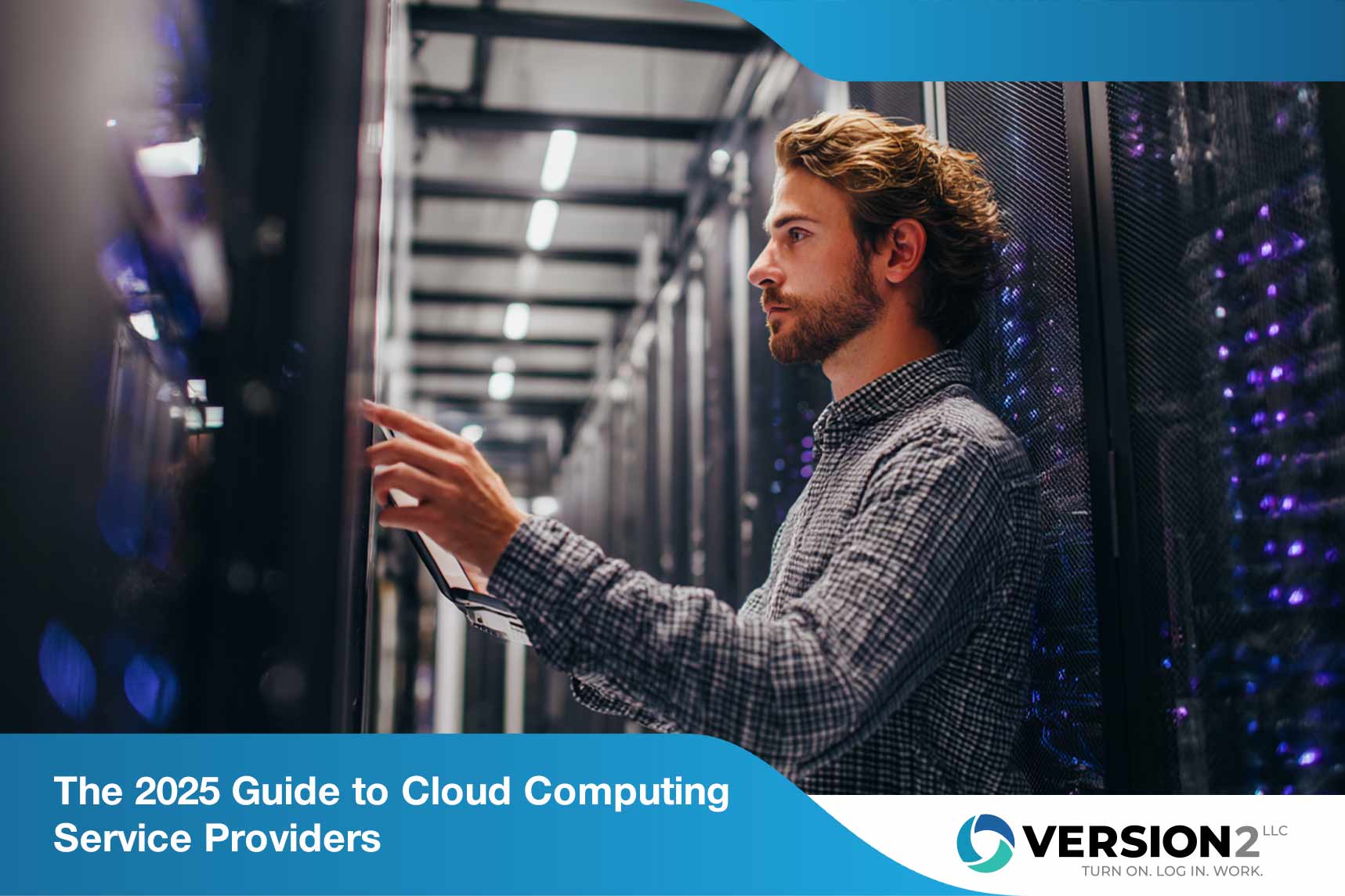
January 30, 2026
IT Cost Optimization Strategies for Cost Control & Competitive Edge
Learn how IT cost optimization helps reduce waste, improve efficiency, and align technology spending with business goals for long-term success.
July 29, 2025

If you’re running a business in Illinois, you’re probably feeling the pressure to modernize your operations without breaking the bank or exposing your systems to cyber threats. That’s where cloud computing service providers come in. But the reality is, not all cloud service providers are built for your business needs. Some are bloated with features you don’t need. Others? Barely secure.
And when customer data, uptime, and productivity are on the line, you can't afford to choose wrong.
This 2025 guide is here to help you see through the noise. Whether you’re a small business aiming for your first cloud platform or an established company wanting to switch to a more secure cloud, you’ll find the clarity you need right here. I’ll walk you through the types of cloud providers, the essential features to look for, and the emerging trends shaping the cloud computing space this year.
By the end, you’ll know exactly how to choose a cloud service provider that fits, not just for today, but for the years ahead.

When you hear about cloud computing service providers, think of them as the backbone of modern business infrastructure. They’re the companies that let you access data, applications, and critical tools anytime, anywhere, without needing your own bulky data center.
In 2025, this isn’t just a convenience. It’s a necessity. Whether you’re managing a remote team, running cloud computing for a small business, or ensuring your customers can reach you without fail, a reliable cloud provider is non-negotiable.
But here’s the catch: businesses today aren’t just looking for storage or cloud services on demand. They need agility, ironclad cloud security, and platforms that scale as fast as their ambitions grow. With cyber threats on the rise, working with a cloud service provider that takes cloud security seriously isn’t just smart—it’s essential.
Plus, as competition tightens, the ability to work seamlessly across multiple devices and locations isn’t just nice to have. It’s what keeps you in the game.
That’s why knowing the top cloud service providers—and understanding what sets them apart—puts you ahead. Because in business, agility, safety, and productivity are everything.
Not every cloud provider offers the same kind of setup, and choosing the wrong type can slow your growth or leave your data exposed. The good news? You’ve got options. The challenge? Knowing which one fits your business best. Let’s break down the three cloud service types you’ll encounter:
Public cloud providers like AWS, Microsoft Azure, and Google Cloud Platform offer computing resources—think storage, servers, applications—over the internet to multiple businesses at once. You share the infrastructure, but the costs stay lower because you’re only paying for what you use.
If you’re scaling fast or using cloud computing for a small business, the public cloud gives you affordable access to enterprise-level tech. The trade-off? Less customization and more shared security responsibility.
A private cloud is built exclusively for your business, either on-premise or hosted by a cloud service provider. This setup gives you more control over your cloud infrastructure, tighter cloud security, and better performance customization—perfect if you’re handling sensitive customer data or operate in regulated industries.
The catch? It’s pricier. But for some, the peace of mind is worth it.
The hybrid cloud approach combines both public and private models, giving you the flexibility to run critical applications on a private cloud while leveraging the public cloud infrastructure for less sensitive workloads.
This is where things get smart. A hybrid cloud solution is ideal when you need the cost-efficiency of the public cloud without compromising the security of your core systems. You can also optimize for cloud costs by keeping high-demand, variable workloads on the public cloud while sensitive tasks stay protected.
Picking a cloud service provider without a checklist is like hiring an employee without a résumé. You’ll want to know they can deliver—not just now, but as your business grows. So what exactly should you look for?
Your cloud platform should be as dependable as your best employee—there when you need it, no exceptions. Look for providers guaranteeing 99.9% uptime or higher. If the provider can’t keep your systems online, you’re gambling with revenue.
A secure cloud isn’t optional anymore. With risks like ransomware and data breaches on the rise, your provider should offer end-to-end cloud security: malware protection, multi-factor authentication, zero trust models, and security awareness training.
If you’re handling sensitive customer data, make sure the provider complies with industry regulations—whether that’s HIPAA, GDPR, or others.
The best cloud computing service providers grow with you. Whether you have 5 or 500 users, your provider should easily scale cloud resources up or down without delays or heavy costs. And if you’re navigating a hybrid cloud or multiple cloud providers, flexibility is a must.
Does the provider offer a range of cloud services that align with your goals? From infrastructure as a service (IaaS) to platform as a service (PaaS) and software as a service (SaaS), the right partner should cover all bases.
You’ll also want access to data analytics, cloud storage, off-site backups, and integration with tools like Microsoft 365.
Support isn’t just a chat window—it’s peace of mind. A provider with a dedicated, U.S.-based support team, like those found with top cloud service providers, can help prevent downtime and assist during emergencies.
Plus, with cloud migration or optimization, having a virtual CIO or tech alignment expert in your corner ensures your infrastructure supports—not hinders—growth.
Lastly, watch out for hidden fees. The right cloud provider will be upfront about cloud costs, including usage-based pricing, storage, and potential penalties for data transfers or scaling up.

The cloud market doesn’t sit still—and if your business wants to stay competitive in 2025, neither can you. Understanding where cloud computing service providers are headed can help you make a smarter, longer-term choice.
The largest cloud platforms are doubling down on machine learning and AI capabilities. Whether it’s Amazon Web Services (AWS), Google Cloud, or Microsoft Azure, these giants are embedding AI into their cloud offerings to streamline data analytics, automate processes, and optimize costs.
If leveraging AI is part of your roadmap, your cloud provider must offer native tools or easy integrations.
More businesses are ditching the single cloud approach. Instead, they’re embracing multiple cloud providers to balance costs, performance, and compliance. A hybrid cloud solution lets you run critical workloads on a private cloud while offloading less sensitive tasks to a public cloud like AWS, Google Cloud Platform, or Alibaba Cloud.
With the explosion of remote work, cloud security is top of mind. Expect providers to offer more advanced protections, including the zero trust model, enhanced encryption, and real-time threat detection.
If your cloud computing platform isn’t evolving with these security trends, your customer data could be the next target.
We’re also seeing the rise of vertical-specific cloud solutions. Whether you’re in healthcare, finance, or manufacturing, top cloud service providers in 2025 will offer tailored infrastructure and compliance support unique to your field.
Don’t overlook players like Huawei Cloud and Alibaba Cloud, especially if you have international operations or supply chains tied to Asia. Alibaba Cloud operates the network that dominates much of the Chinese cloud market, giving businesses a broader global reach.
Lastly, providers are investing in eco-friendly data centers and green computing infrastructure to reduce environmental impact. This not only helps the planet but can also reduce cloud costs over time through energy efficiencies.
There’s no universal “best” cloud provider—only the best one for your business. The question is: how do you choose a cloud partner that doesn’t just sound good on paper, but actually moves the needle for your bottom line?
Here’s how to approach it:
Are you focused on cloud computing for small business scalability? Need bulletproof cloud security for sensitive customer data? Or are you looking to power remote teams with a reliable cloud service? Knowing what matters most to your operations will immediately narrow down your options.
The range of cloud computing services is vast, but not all of them are necessary for your company. If remote collaboration is key, make sure your provider supports tools like Microsoft 365 or a hybrid cloud environment. If you’re processing heavy data or design files, seek providers offering high-performance graphics and specialized cloud infrastructure.
A flashy cloud platform is useless if support is sluggish when you need it most. Opt for a provider with a proven track record of managed services, proactive maintenance, and fast response times. Having access to a virtual CIO or a Technology Alignment Manager ensures your cloud migration, scaling, and upgrades align with your evolving needs.
This is non-negotiable. A cloud service provider should offer multi-layered security, from multi-factor authentication to zero trust frameworks. If your provider isn’t talking about security upfront, that’s your red flag.
Avoid surprises by getting clear visibility into cloud costs, including storage, compute, support, and data transfer fees. Remember: the best cloud provider isn't the cheapest—it’s the one that protects your uptime, data, and growth potential.
If your business is expanding or works internationally, consider providers with global reach like AWS Cloud Spans, Google Cloud, or IBM Cloud. But if you value having a responsive team that understands local business climates, a Chicago-based team might serve you better.

You’re not just buying technology—you’re buying stability, security, and scalability for your business. The cloud service provider you choose will either help you thrive in a fast-changing world or leave you scrambling when things go wrong.
If you’re ready to simplify the complex world of cloud computing, yet need a solution tailored to your exact operations, you don’t have to figure it out alone. That’s where Version2 comes in. With over 15 years of experience helping Illinois businesses transform with the right technology, our proactive, always-accessible managed services make sure your systems aren’t just running, but running smart.
Need help identifying the cloud platform that aligns with your business goals? Contact us today. Let’s make your cloud transition the least of your worries—so you can focus on what matters: growing your business.
When choosing the right cloud infrastructure, it’s important to understand the distinction between public cloud, private cloud, and hybrid cloud setups.
Understanding these options is a crucial first step when you’re preparing to choose a cloud provider.
To choose a cloud provider, start by outlining your business requirements for scalability, security, and performance. Consider factors like cloud costs, compliance needs, and data privacy. Some organizations benefit from multiple cloud providers to balance these priorities.
It’s also wise to check if the provider offers a wide variety of services, including data management, infrastructure services, and tools that support your existing tech stack.
Effective cloud adoption enables businesses to improve agility, enhance collaboration, and reduce reliance on outdated systems. Leveraging cloud computing and data management means your teams can access resources globally while ensuring data remains protected and easily scalable.
When you choose a cloud, make sure it supports your roadmap for growth and digital transformation.
Many businesses today prefer a multi-cloud strategy, working with multiple cloud providers to diversify risk, control cloud costs, and optimize performance. By doing this, businesses can take advantage of specialized infrastructure and platform services without being locked into one provider.
This flexibility is especially useful when navigating global markets or specialized compliance requirements.
Modern cloud services include offerings like infrastructure as a service, platform as a service, software as a service, and hybrid cloud models. These solutions often come bundled with data services, data management tools, and support for computing infrastructure.
They’re designed to simplify cloud computing services to support your workflows, from storage to analytics, across various cloud environments.
Yes, the cloud infrastructure market is evolving rapidly. Trends include smarter data analytics, AI-driven automation, and greater integration between cloud platforms and edge computing. Providers are also focusing on intelligent cloud solutions, more secure environments, and eco-friendly data center operations.

January 30, 2026
Learn how IT cost optimization helps reduce waste, improve efficiency, and align technology spending with business goals for long-term success.

January 26, 2026
Learn how IT infrastructure management helps your business stay secure, efficient, and scalable with best practices, tools, and expert strategies.

January 20, 2026
Learn how IT support and maintenance services help reduce downtime, improve reliability, and keep your business systems running efficiently and securely.